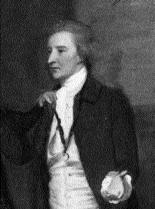Reflections on Burke
Published in 18th–19th - Century History, Issue 2 (Summer 1998), Letters, Volume 6
Edmund Burke
Sir—I enjoyed Luke Gibbons’ article on Edmund Burke (HI Winter 1997),but may I add another point on the well-known Burke quotation in BrianFriel’s Philadelphia here I come. The quotation, from Reflections onthe Revolution in France (‘It is now sixteen or seventeen years since Isaw the Queen of France…’), was from a passage that generations ofIrish Catholic schoolchildren learned by heart. This had nothing to dowith a vanished British imperial past and everything to do with theCatholic Church’s long-held and strongly-felt opposition to the FrenchRevolution.
Until the 1960s, when a complete change of emphasis enters Catholicteaching, the French Revolution had been held to he the mother of allmodern political ills (deriving, as it did, from the Reformation).Denunciation of the ideas of 1789 is a very common theme in the IrishEcclesiastical Record from its inception in 1864, and when Bolshevismarrives in the 1920s its sources are traced, in Catholic discourse,back to that challenge to order and authority.
With Pope John XXIII’s regime, dialogue replaces confrontation, andafter Vatican II, the recurring critique of 1789 is dropped, virtuallyovernight. About this time Irish Catholic schoolchildren, I believe,stopped learning Burke off by heart. Objectively speaking, as theMarxists used to say, the Church was correct in seeing the ideas of theFrench Revolution as being in opposition to its authority, and ofcourse, the strong anti-clerical note that persisted among Frenchrepublicans, particularly in their educational policies, was evidencefor this.—Yours etc.,
MARRY KENNY
Kildare Street
Dublin 2
















